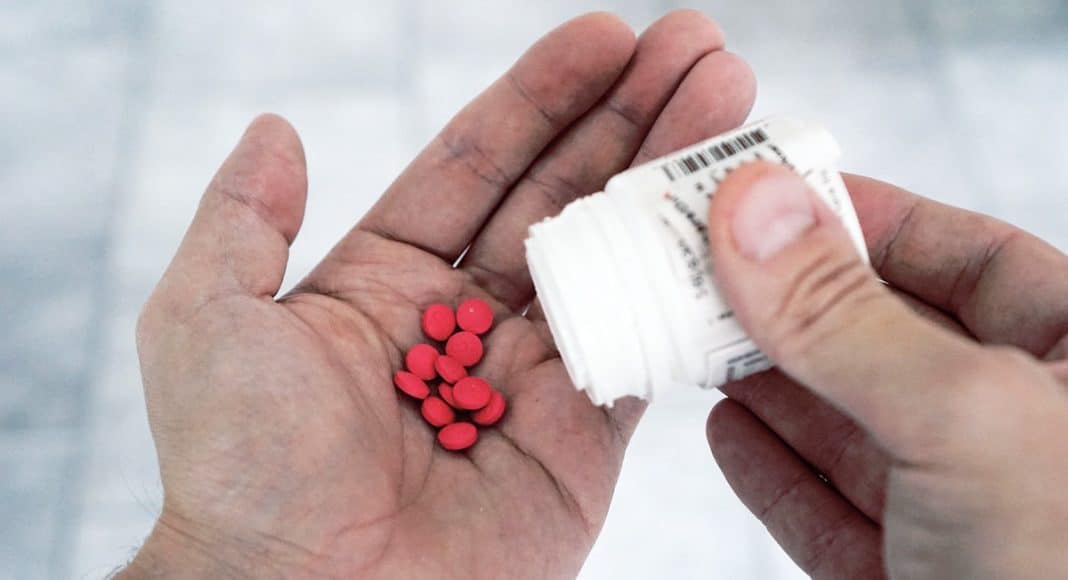- Every day, more than 80 people with opioid addiction die in the United States from an overdose opiates.
- About 2.5 million Americans have been diagnose with an opioid use disorder — and many more have been undiagnosed.
- It is overwhelmingly clear that the gateway drug to heroin is opioid prescription painkillers: 80 percent of heroin users started the habit after taking pharmaceuticals.
- Each year, 2oo million prescriptions for opioid painkillers are written, roughly the same number of the entire U.S. adult population.
- The economic costs for this epidemic is estimated conservatively at $78 billion a year in the U.S.
With these staggering data points in mind, a neurobiologist conducted a study to see if cannabis could reduce the cravings and ease withdrawal symptoms of heroin users.
“It is my opinion that bold steps are also required to escalate the pipeline in developing creative and innovative treatments to help curb this epidemic,” said Yasmin Hurd of the Icahn School of Medicine at Mount Sinai, who studies how both cannabinoids and opioids act on the brain. Her research was published on Thursday in in Trends in Neurosciences.
Marijuana’s Underexplored Potential For Helping Opioid Addiction translates into cannabinoids having, for example, a stronger effect on inflammation-based chronic pain. Meanwhile, opioids are particularly good at relieving acute pain, which is why they are used in surgery. The problem is that opioids can quickly lead to a deadly addiction.
“If you look at both drugs and where their receptors are, opioids are much more dangerous, in part because of the potential for overdose–the opioid receptors are very abundant in the brainstem area that regulates our respiration, so they shut down the breathing center if opioid doses are high,” Hurd says. “Cannabinoids don’t do that. They have a much wider window of therapeutic benefit without causing an overdose in adults.”
Evidence in animal models supports that cannabinoids could have long-lasting therapeutic effects. A specific cannabinoid, cannabidiol, has been seen to reduce heroin cravings in animals more than a week after abstinence, and seems to restore some of the neurobiological damage induced by opioid use. A small pilot human investigation led by Hurd mirrored these findings in rodents. In the study, cannabidiol particularly helped relieve anxiety related to cravings in heroin users abstaining from use.
-
Related Story: Opioids Out, Cannabis In, Top Medical Research Journal Says
Politicians are only beginning to acknowledge that an epidemic of opioid addiction overdoses is taking place across the United States, particularly in suburban and rural areas, and the National Institute on Drug Abuse is asking researchers to think creatively about new strategies for pain relief. Marijuana has been a neglected option because there are restrictions on studying its effects in humans. While there has been a growing interest by the scientific community in cannabinoids since the legalization of medical marijuana, it means that we still don’t know much about how it could be used therapeutically, despite at least a million people having prescriptions.
“We have to be open to marijuana because there are components of the plant that seem to have therapeutic properties,” Hurd said.
She concludes with a call to action for scientists and medical professionals:
Although significant momentum in the general public has moved the pendulum regarding marijuana, the scientific and medical communities now need to play a more leading role via evidence-based studies. In this way, scientific and medical evidence will once again serve to inform the public and to develop efficacious and safe therapies. However, such advances will require significant and immediate actions to be taken by the National Institutes of Health and other federal agencies to help develop a structure for fast-tracking the clinical use of ‘medical CBD’.
Read the full report here.


